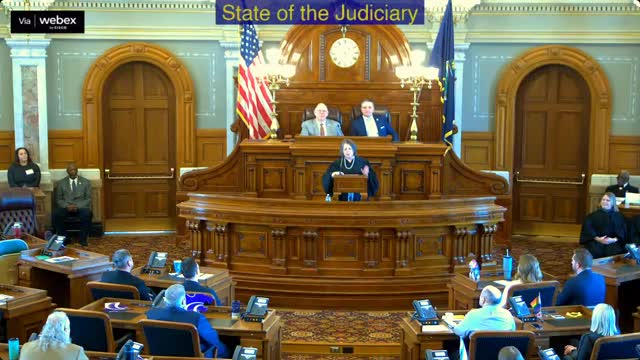Presenter urges expansion of e-filing, court help centers and child-welfare supports
Get AI-powered insights, summaries, and transcripts
Subscribe
Summary
At a Committee on Judiciary session, an unidentified presenter described plans to expand e-filing for self-represented litigants, increase help centers and navigator programs, and pilot family-support "cards" to aid families in child-welfare cases, and asked for funding and interbranch collaboration.
At a Committee on Judiciary meeting, an unidentified presenter outlined proposals to expand court e-filing for self-represented litigants, increase in-person and online help centers and navigator programs, and pilot family-support identification cards aimed at assisting families involved in child-welfare cases.
The presenter said the measures are intended to make the legal system more accessible and to reduce barriers for people who lack counsel. They described a suite of resources — including videos, online resource packets, courthouse and library-based assistance, and an e-filing portal — meant to help people navigate eviction, debt collection, employment, and other civil matters without attorneys.
The presenter said courts currently face complex civil and criminal caseloads and that simplifying procedural steps could reduce unnecessary adverse consequences for individuals, such as loss of property or housing. They described pilot projects that streamline intake and case processing for complicated matters and said a growing number of help centers and court-navigator programs are in operation or development.
On child-welfare issues, the presenter described a three-branch child welfare initiative, which they said is chaired by Justice Molista Standridge, and called for a statewide summit to discuss improvements for children and families navigating the child-welfare system. The presentation included a description of a program described in the transcript as “Family Trim Accord” or “family triage cards,” which the presenter said would provide a portable summary or advisory tool for families and service providers in child-welfare cases and that pilot sites are operating in several communities.
The presenter requested support and funding for the e-filing platform, help centers, and related initiatives, and asked the committee to coordinate with courts, libraries and community partners to increase online and in-person access. They said some services already exist but are not uniformly available statewide and that the proposed reforms would include more online resources and an accessible e-filing portal for self-represented litigants.
No formal motions, votes or binding decisions were recorded in the transcript excerpt. The presenter closed by saying “much work remains” and asked the committee for support to continue implementing the projects.
Details were presented in general terms in the transcript; where the speaker referenced numerical counts or program locations the transcript text was unclear. The presenter repeatedly framed the proposals as requests for support and coordination rather than as finalized policies or appropriations.
